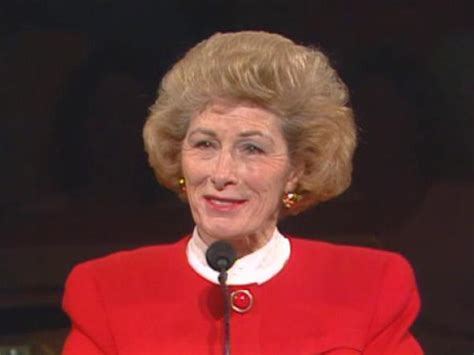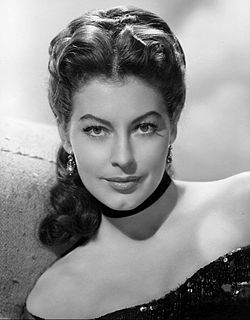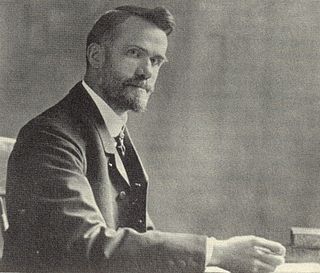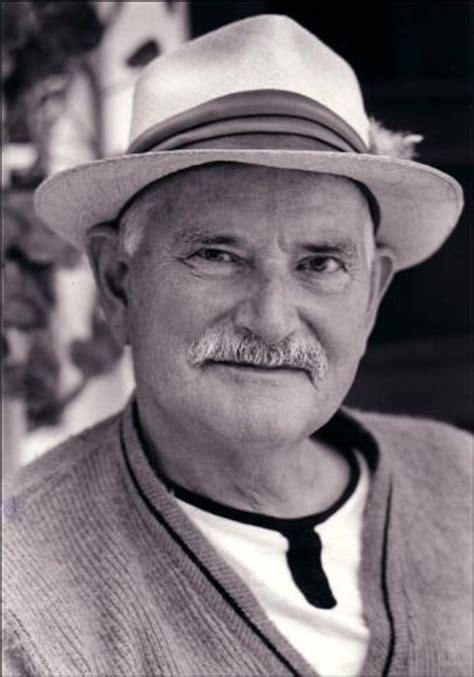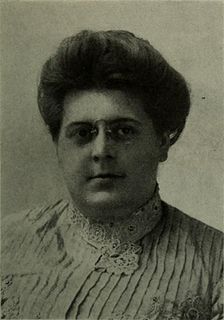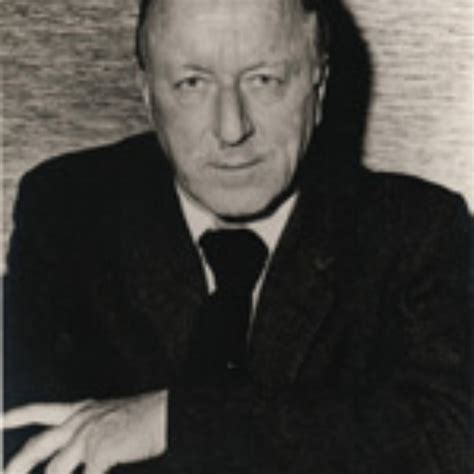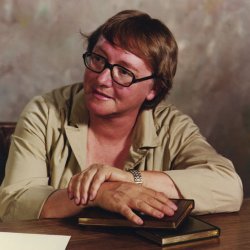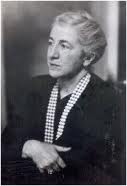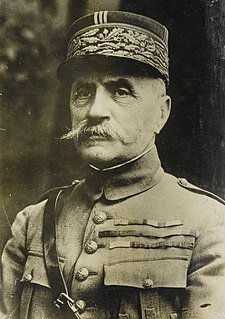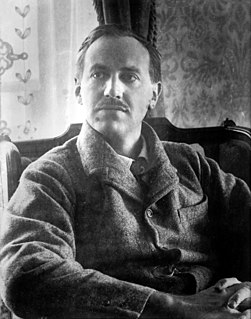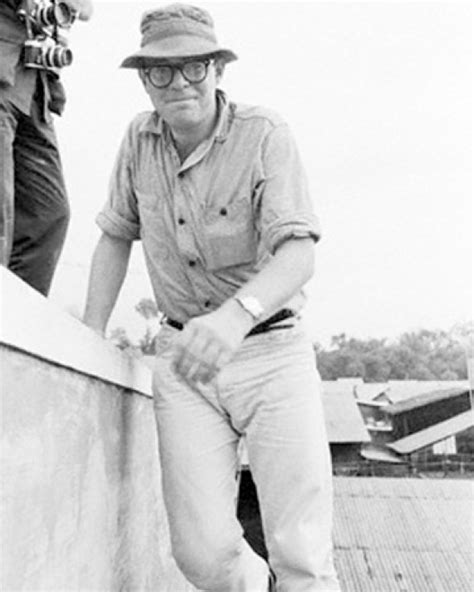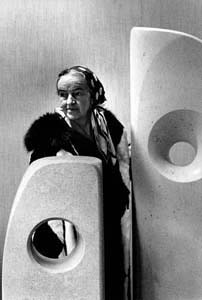Top 894 Hills Quotes & Sayings - Page 15
Explore popular Hills quotes.
Last updated on April 16, 2025.
Rest forever, tired heart.
The final illusion has perished.
The one we believed eternal is gone.
Just like that. Out the door desire
follows hope. Rest forever.
Enough throbbing. Nothing deserves your attention
nor is the earth worth a sigh.
Bitterness and boredom is life,
nothing else ever, and the world is mud.
Quiet now. Despair for the last time.
Fate gives us dying as a gift.
Now turn from the hills, the ugly hidden power
which rules for the common evil
and the infinite vanity of it all.
The fruit of our labors is sweet when the work is consecrated to God. But we have to be able to weather the conditions - the winds, the rain or the drought, the brilliant sun and sometimes the bitter cold. Sometimes our work needs to be directed at improving our ground rather than excusing our own harvests because the place we have been given is a little hard; there are too many rocks, too many hills, too little top soil. If we focus on where we are instead of what we can do with our plot, we will find our efforts significantly diminished.
The old dead trees are the most fascinating - the countless trees lying in the gullies and up the hills that fell perhaps a century ago, pulling up their roots from the earth as they toppled. The great upheavals left rocks in their huge tentacles and, as they slowly rot, the trunks are home to populations of creatures, from goannas to wild pigs. As grey as tombstones in a cemetery they lie there, having outlasted generations of farmers, as they'll outlast me. In their own way they are as beautiful, more beautiful, than living trees.
I dealt with men who had tempers, and who could get violent-Lord knows how I had to defend myself against Howard Hughes and Frank Sinatra, and from Artie Shaw's verbal abuse. But George [C. Scott] was a different category of animal when he got drunk. He'd break into my hotel room, which he did in Italy, London and at the Beverly Hills Hotel, attack me to where I was frightened for my life, and scream, 'Why won't you marry me?' Well, I would never marry a man who couldn't control his liquor. Me, I'm a happy drunk. I laugh, I dance. I certainly don't break bottles and threaten to kill.
In the early morning hours, Hannah read at the table by the dim light of dawn. She leaned in close to the pages, chin resting on her folded arms, eyes racing over the words, like chasing butterflies over the hills, to catch as many as she could before going to work. She wondered at how such tales of magic could be contained by mere paper and ink for her to read again and again.
A man dies and goes to heaven. He is being shown around by an angel. Everything is just so sweet and gentle, the total golden tender presence of God everywhere, a pond over there, a beautiful field there, and some hills for people who like to hike, and this expansiveness in every direction of sky and light and physical beauty. And there is this section separated from the rest; it has beautiful high walls. The man who's just come to heaven says, "What's over there?" The angel says, "That's for the fundamentalists. They don't consider it heaven if anyone else got in.
The earthquake in Haiti was a class-based catastrophe. It didn't much harm the wealthy elite up in the hills, they were shaken but not destroyed. On the other hand the people who were living in the miserable urban slums, huge numbers of them, they were devastated. Maybe a couple hundred thousand were killed. How come they were living there? They were living there because of-it goes back to the French colonial system-but in the past century, they were living there because of US policies, consistent policies.
A lang, lang time ago…” MacPhee began, ignoring St.Vincent’s low groan, “there was a bonnie maid called Malvina. She was the betrothed of Oscar, the braw warrior who won her heart. Oscar bade his beloved tae wait for him while he went tae seek his fortune. But one black day Malvina received word that her lover had been killed in battle. He would lie forever in eternal rest in the faraway hills…lost in endless slumber…” “God, I envy him,” St. Vincent said feelingly, rubbing his own dark-circled eyes.
We sometimes meet uncivil men, children of Amazons, who dwell by mountain paths, and are said to be inhospitable to strangers; whose salutation is as rude as the grasp of their brawny hands, and who deal with men as unceremoniously as they are wont to deal with the elements. They need only extend their clearings, and let in more sunlight, to seek out the southern slopes of the hills, from which they may look down on the civil plain or ocean, and temper their diet duly with the cereal fruits, consuming less wild meat and acorns, to become like the inhabitants of cities.
At the door , she made him promise to go without goodbyes .She closed the door on him . Laila leaned her back against it , shaking against his pounding fists , one arm gripping her belly and a hand across her mouth , as he spoke throughout the door and promised that he would come back for her . She stood there until he tired , until he gave up , and then she listened to his uneven footsteps until they faded , until all was quiet , save for the gunfire cracking in the hills and her own heart thudding in her belly , her eyes , her bones .
Jerusalem (1804) And did those feet in ancient time Walk upon England's mountains green And was the holy lamb of God On England's pleasant pastures seen And did the countenance divine Shine forth upon our clouded hills And was Jerusalem builded here Among those dark Satanic mills Bring me my bow of burning gold Bring me my arrows of desire Bring me my spears o'clouds unfold Bring me my chariot of fire I will not cease from mental fight Nor shall my sword sleep in my hand 'Til we have built Jerusalem In England's green and pleasant land
God, we thank you for this earth, our homes; for the wide sky and the blessed sun, for the salt sea and the running water, for the everlasting hills and the never resting winds, for trees and the common grass underfoot. We thank you for our senses by which we hear the songs of birds, and see the splendor of the summer fields, and taste of the autumn fruits, and rejoice in the feel of the snow, and smell the breath of the spring. Grant us a heart wide open to all this beauty; and save our souls from being so blind that we pass unseeing when even the common thorn bush is aflame with your glory.
Hold your hands out over the earth as over a flame. To all who love her, who open to her the doors of their veins, she gives of her strength, sustaining them with her own measureless tremor of dark life. Touch the earth, love the earth, honor the earth, her plains, her valleys, her hills, and her seas; rest your spirit in her solitary places. For the gifts of life are the earth's and they are given to all, and they are the songs of birds at daybreak, Orion and the Bear, and dawn seen over ocean from the beach.
The river itself portrays humanity precisely, with its tortuous windings, its accumulation of driftwood, its unsuspected depths, and its crystalline shallows, singing in the Summer sun. Barriers may be built across its path, but they bring only power, as the conquering of an obstacle is always sure to do. Sometimes when the rocks and stone-clad hills loom large ahead, and eternity itself would be needed to carve a passage, there is an easy way around. The discovery of it makes the river sing with gladness and turns the murmurous deeps to living water, bright with ripples and foam.
When winter stern, his gloomy front uprears,
A sable void the barren earth appears;
The meads no more their former verdure boast,
Fast-bound their streams, and all their beauty lost;
The herds, the flocks, in icy garments mourn, and wildly murmur for the Spring's return;
From snow-topp'd hills the whirlwinds keenly blow,
Howl through the woods, and pierce the vales below,
Through the sharp air a flaky torrent flies,
Mocks the slow sight, and hides the gloomy skies.
He domesticated and developed the native wild flowers. He had one hill-side solidly clad with that low-growing purple verbena which mats over the hills of New Mexico. It was like a great violet velvet mantle thrown down in the sun; all the shades that the dyers and weavers of Italy and France strove for through centuries, the violet that is full of rose colour and is yet not lavender; the blue that becomes almost pink and then retreats again into sea-dark purple—the true Episcopal colour and countless variations of it.
If I know a song of Africa, of the giraffe and the African new moon lying on her back, of the plows in the fields and the sweaty faces of the coffee pickers, does Africa know a song of me? Will the air over the plain quiver with a color that I have had on, or the children invent a game in which my name is, or the full moon throw a shadow over the gravel of the drive that was like me, or will the eagles of the Ngong Hills look out for me?
The heat is searing and superb. The paddocks surrounding the town are bleached blond. The distant ring-barked gums, mile after mile, wriggle in the heat-waves, and seem to melt like the bristles of a melting hairbrush. The hills turn powder-blue and gauzy. Mirages resembling pools of mica and shallows of crystal water appear at the far ends of streets and roads. Punctually at eleven every burning morning, the cicadas begin to drill the air, to drill themselves also, ceaselessly and relentlessly, to death in one short day after seven long years underground.
She sat down on one of her grandmother's uncomfortable armchairs, and the cat sprang up into her lap and made itself comfortable. The light that came through the picture window was daylight, real golden late-afternoon daylight, not a white mist light. The sky was a robin's-egg blue, and Coraline could see trees and, beyond the trees, green hills, which faded on the horizon into purples and grays. The sky had never seemed so sky, the world had never seemed so world ... Nothing, she thought, had ever been so interesting.
You should look at certain walls stained with damp, or at stones of uneven color. If you have to invent some backgrounds you will be able to see in these the likeness of divine landscapes, adorned with mountains, ruins, rocks, woods, great plains, hills and valleys in great variety; and expressions of faces and clothes and an infinity of things which you will be able to reduce to their complete and proper forms. In such walls the same thing happens as in the sound of bells, in whose stroke you may find every named word which you can imagine.
Roads go ever ever on, Over rock and under tree, By caves where never sun has shone, By streams that never find the sea; Over snow by winter sown, And through the merry flowers of June, Over grass and over stone, And under mountains of the moon. Roads go ever ever on Under cloud and under star, Yet feet that wandering have gone Turn at last to home afar. Eyes that fire and sword have seen And horror in the halls of stone Look at last on meadows green And trees and hills they long have known
Elena had always felt like the center of her own world - who doesn't? The world arranged itself around her like petals around the stem of a flower. This way the meadows, that way the woodland. Over here, the baryn's estate, out there, the hills that hug the known world close and imply a world at beyond. She could never come up with the edge of a world, because it always kept going on beyond. She moved the center of the world as she walked. The world was balanced on her head.
Then, Éowyn of Rohan, I say to you that you are beautiful. In the valleys of our hills there are flowers fair and bright, and maidens fairer still; but neither flower nor lady have I seen till now in Gondor so lovely, and so sorrowful. It may be that only a few days are left ere darkness falls upon our world, and when it comes I hope to face it steadily; but it would ease my heart, if while the Sun yet shines, I could see you still. For you and I have both passed under the wings of the Shadow, and the same hand drew us back.
Rome was mud and smoky skies; the rank smell of the Tiber and the exotically spiced cooking fires of a hundred different nationalities. Rome was white marble and gilding and heady perfumes; the blare of trumpets and the shrieking of market-women and the eternal, sub-aural hum of more people, speaking more languages than Gaius had ever imagined existed, crammed together on seven hills whose contours had long ago disappeared beneath this encrustation if humanity. Rome was the pulsing heart of the world.
It was actually books that started to make those pockets of freedom, which I hadn't otherwise experienced. I do see them as talismans, as sacred objects. I see them as something that will protect me, I suppose, that will save me from things that I feel are threatening. I still think that; it doesn't change. It doesn't change, having money, being successful. So from the very first, if I was hurt in some way, then I would take a book -- which was very difficult for me to buy when I was little -- and I would go up into the hills, and that is how I would assuage my hurt.
Narrative should flow as flows the brook down through the hills and the leafy woodlands...a brook that never goes straight for a minute, but goes and goes briskly, sometimes ungrammatically, and sometimes fetching a horseshoe of ¾ of a mile around and at the end of the circuit flowing within a yard of the path that it traversed an hour before; but always going and always following at least one law, always loyal to that law, the law of narrative, which has no law. Nothing to do but make the trip; the how of it is not important, so that the trip is made.
Being on a film set is like being in tech forever. In theater, when you finally finish rehearsing, you go onstage and you do the lights and the sets and you make the machine of the production work. It takes usually about ten days in the theater, two or three weeks if it's a really big musical. I mean, it's hell on earth. You just sit around forever while they adjust the lights. And every playwright with half a brain runs for the hills when tech starts because it's so boring, and you don't want to talk to the director because the director is running this giant machine.
There are some delightful places in this world which have a sensual charm for the eyes. One loves them with a physical love. We people who are attracted by the countryside cherish fond memories of certain springs, certain woods, certain ponds, certain hills, which have become familiar sights and can touch our hearts like happy events. Sometimes indeed the memory goes back towards a forest glade, or a spot on a river bank or an orchard in blossom, glimpsed only once on a happy day, but preserved in our heart.
This is a valley of ashes--a fantastic farm where ashes grow like wheat into ridges and hills and grotesque gardens; where ashes take the forms of houses and chimneys and rising smoke and, finally, with a transcendent effort, of men who move dimly and already crumbling through the powdery air. Occasionally a line of gray cars crawls along an invisible track, gives out a ghastly creak, and comes to rest, and immediately the ash-gray men swarm up with leaden spades and stir up an impenetrable cloud, which screens their obscure operations from your sight.
The window opened in the same direction as the king's, and there, summer-bright and framed by the darkness of the stairwell, was the same view. Costis passed it, and then went back up the stairs to look again. There were only the roofs of the lower part of the palace and the town and the city walls. Beyond those were the hills on the far side of the Tustis Valley and the faded blue sky above them. It wasn't what the king saw that was important, it was what he couldn't see when he sat at the window with his face turned toward Eddis.
It was how wars really ended, Dieffenbaker supposed -- not at truce tables but in cancer wards and office cafeterias and traffic jams. Wars died one tiny piece at a time, each piece something that fell like a memory, each lost like an echo that fades in winding hills. In the end even war ran up the white flag. Or so he hoped. He hoped that in the end even war surrendered.
The great affair, the love affair with life,
is to live as variously as possible,
to groom one's curiosity like a high-spirited thoroughbred,
climb aboard, and gallop over the thick, sun-struck hills every day.
Where there is no risk, the emotional terrain is flat and unyielding,
and, despite all its dimensions, valleys, pinnacles, and detours,
life will seem to have none of its magnificent geography, only a length.
It began in mystery, and it will end in mystery,
but what a savage and beautiful country lies in between.
No live organism can continue for long to exist sanely under conditions of absolute reality; even larks and katydids are supposed, by some, to dream. Hill House, not sane, stood by itself against its hills, holding darkness within; it had stood so for eighty years and might stand for eighty more. Within, walls continued upright, bricks met neatly, floors were firm, and doors were sensibly shut; silence lay steadily against the wood and stone of Hill House, and whatever walked there, walked alone.
A few minutes ago every tree was excited, bowing to the roaring storm, waving, swirling, tossing their branches in glorious enthusiasm like worship. But though to the outer ear these trees are now silent, their songs never cease. Every hidden cell is throbbing with music and life, every fiber thrilling like harp strings, while incense is ever flowing from the balsam bells and leaves. No wonder the hills and groves were God's first temples, and the more they are cut down and hewn into cathedrals and churches, the farther off and dimmer seems the Lord himself.
Today I walked on the lion-coloured hills with only cypresses for company, until the sunset caught me, turned the brush to copper set the clouds to one great roof of flame above the earth, so that I walk through fire, beneath fire, and all in beauty. Being alone I could not be alone, but felt (closer than flesh) the presence of those who once had burned in such transfigurations. My happiness ran through the centuries in one continual brightness. Looking down, I saw the earth beneath me like a rose petaled with mountains, fragrant with deep peace.
We shall defend our island whatever the cost may be; we shall fight on beaches, landing grounds, in fields, in streets and on the hills. We shall never surrender and even if, which I do not for the moment believe, this island or a large part of it were subjugated and starving, then our empire beyond the seas, armed and guarded by the British Fleet, will carry on the struggle until in God's good time the New World with all its power and might, sets forth to the liberation and rescue of the Old.
We say, then, to anyone who is under trial, give Him time to steep the soul in His eternal truth. Go into the open air, look up into the depths of the sky, or out upon the wideness of the sea, or on the strength of the hills that is His also; or, if bound in the body, go forth in the spirit; spirit is not bound. Give Him time and, as surely as dawn follows night, there will break upon the heart a sense of certainty that cannot be shaken.
The era of wild apples will soon be over. I wander through old orchards of great extent, now all gone to decay, all of native fruit which for the most part went to the cider mill. But since the temperance reform and the general introduction of grafted fruit, no wild apples, such as I see everywhere in deserted pastures, and where the woods have grown up among them, are set out. I fear that he who walks over these hills a century hence will not know the pleasure of knocking off wild apples.
Love is Enough Love is enough: though the world be a-waning, And the woods have no voice but the voice of complaining, Though the skies be too dark for dim eyes to discover The gold-cups and daisies fair blooming thereunder, Though the hills be held shadows, and the sea a dark wonder, And this day draw a veil over all deeds passed over, Yet their hands shall not tremble, their feet shall not falter: The void shall not weary, the fear shall not alter These lips and these eyes of the loved and the lover.
School is a building that has four walls-with tomorrow inside. Our deeds determine us, as much as we determine our deeds. There are many ways of going forward, but there is only one way of standing still. A lot of us would like to move mountains, but few of us are willing to practice on small hills. Doing your best is more important than being the best. Giant oak trees started out as little nuts. The most powerful weapon on earth is the human soul on fire.
Yet in the blood of man there is a tide, an old sea-current, rather, that is somehow akin to the twilight, which brings him rumours of beauty from however far away, as drift-wood is found at sea from islands not yet discovered; and this spring-tide or current that visits the blood of man comes from the fabulous quarter of his lineage, from the legendary, of old; it takes him out to the woodlands, out to the hills; he listens to ancient song.
Yes! I did [grow up on a Christmas Tree farm], so this is a good season for me. I was too young to help with the hauling of the trees up the hills and putting them onto cars. So, it was my job to pull off the preying mantis pods off of the Christmas trees. The problem with that is if you leave them on there, people bring them into their house. I forgot to check one time and they hatched all over these people’s house. And there were hundreds of thousands of them. And they had little kids, and they couldn’t kill of them because that’d be a bad Christmas.
I have a dream that one day on the red hills of Georgia, sons of former slaves and sons of former slave-owners will be able to sit down together at the table of brotherhood. I have a dream that one day, even the state of Mississippi, a state sweltering with the heat of injustice, sweltering with the heat of oppression, will be transformed into a oasis of freedom and justice. I have a dream my four little children will one day live in a nation where they will not be judged by the color of their skin but by content of their character. I have a dream today!
Chiron, I don't think the attic is the proper place for our new Oracle, do you?" "No, indeed." Chiron looked a lot better now that Apollo had worked some medical magic on him. "Rachel may use a guest room in the Big House for now, until we give the matter more thought." "I'm thinking a cave in the hills," Apollo mused. "With torches and a big purple curtain over the entrance . . . really mysterious. But inside, a totally decked-out pad with a game room and one of those home theater systems.
Why are we such tortured human beings, with tears in our eyes and false laughter on our lips? If you could walk alone among those hills or in the woods or along the long, white, bleached sands, in that solitude you would know what meditation is. The ecstasy of solitude comes when you are not frightened to be alone no longer belonging to the world or attached to anything. Then, like that dawn that came up this morning, it comes silently, and makes a golden path in the very stillness, which was at the beginning, which is now, and which will be always there.
We never announced a scorched-earth policy; we never announced any policy at all, apart from finding and destroying the enemy, and we proceeded in the most obvious way. We used what was at hand, dropping the greatest volume of explosives in the history of warfare over all the terrain within the thirty-mile sector which fanned out from Khe Sanh. Employing saturation-bombing techniques, we delivered more than 110,000 tons of bombs to those hills during the eleven-week containment of Khe Sanh.
Everything was red, the air, the sun, whatever I looked at. Except for him. I fell in love with someone who was human. I watched him walk through the hills and come back in the evening when his work was through. I saw things no woman would see: that he knew how to cry, that he was alone. I cast myself at him, like a fool, but he didn't see me. And then one day he noticed I was beautiful and he wanted me. He broke me off and took me with him, in his hands, and I didn't care that I was dying until I actually was.
That country where it is always turning late in the year. That country where the hills are fog and the rivers are mist; where noons go quickly, dusks and twilights linger, and midnights stay. That country composed in the main of cellars, sub-cellars, coal-bins, closets, attics, and pantries faced away from the sun. That country whose people are autumn people, thinking only autumn thoughts. Whose people passing at night on the empty walks sound like rain.
To the chefs who pioneered the nouvelle cuisine in France, the ancienne cuisine they were rebelling against looked timeless, primordial, old as the hills. But the cookbook record proves that the haute cuisine codified early in this century by Escoffier barely goes back to Napoleon's time. Before that, French food is not recognizable as French to modern eyes. Europe's menu before 1700 was completely different from its menu after 1800, when national cuisines arose along with modern nations and national cultures.
We swung over the hills and over the town and back again, and I saw how a man can be master of a craft, and how a craft can be master of an element. I saw the alchemy of perspective reduce my world, and all my other life, to grains in a cup. I learned to watch, to put my trust in other hands than mine. And I learned to wander. I learned what every dreaming child needs to know -- that no horizon is so far that you cannot get above it or beyond it.
All my early memories are of forms and shapes and textures. Moving through and over the West Riding landscape with my father in his car, the hills were sculptures; the roads defined the form. Above all, there was the sensation of moving physically over the contours of fullnessess and concavities, through hollows and over peaks - feeling, touching, seeing, through mind and hand and eye. This sensation has never left me. I, the sculptor, am the landscape. I am the form and the hollow, the thrust and the contour.
A writer from ESPN magazine once described me as the world's largest eleven-year-old. That's true. I ride my Sea-Doo jet ski, play putt-putt golf, go to water parks, and act silly. On the bottom floor of my house in Beverly Hills, I have video games, a pool table, a Pepsi machine, and all the things they have in arcades. I drive go-karts, at least the ones I can fit in. I karate-chop my friends when they come over, like the Kato dude in the Pink Panther movies.
It is not strange that that early love of the heart should come back, as it so often does when the dim eye is brightening with its last light. It is not strange that the freshest fountains the heart has ever known in its wastes should bubble up anew when the lifeblood is growing stagnant. It is not strange that a bright memory should come to a dying old man, as the sunshine breaks across the hills at the close of a stormy day; nor that in the light of that ray, the very clouds that made the day dark should grow gloriously beautiful.
The old stage coach was rumbling along the dusty road that runs from Maplewood to Riverboro. The day was as warm as midsummer, though it was only the middle of May, and Mr. Jeremiah Cobb was favoring the horses as much as possible, yet never losing sight of the fact that he carried the mail. The hills were many, and the reins lay loosely in his hands as he lolled back in his seat and extended one foot and leg luxuriously over the dashboard. His brimmed hat of worn felt was well pulled over his eyes, and revolved a quid of tobacco in his left cheek.

